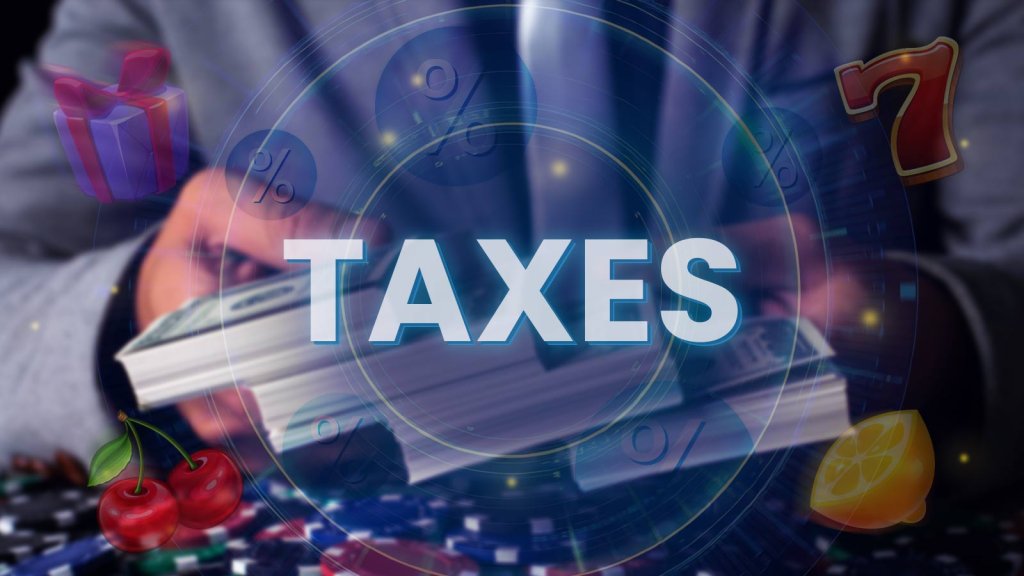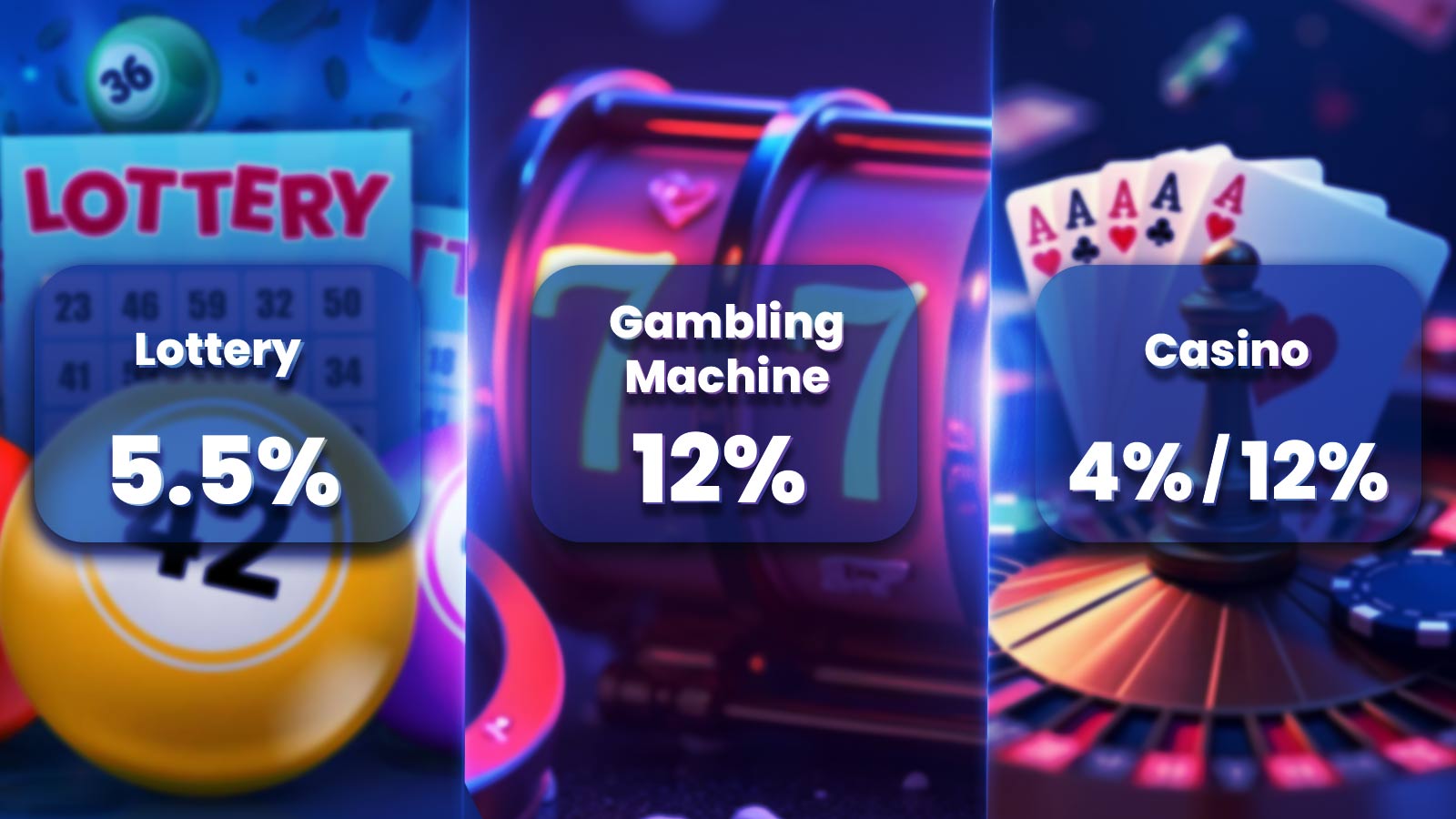
Gambling Winnings & Taxes in New Zealand: Hobby vs. Professional Rules
All the information in this page was checked by:
Every piece of information we present is rigorously verified by our team of experts using multiple credible sources, ensuring the highest level of accuracy and reliability.
We have paid partnerships with the online casino operators featured on our site. We may also earn commissions when users click on certain links. However, these partnerships do not affect our reviews, recommendations, or analysis. We remain impartial and committed to delivering unbiased gambling content. For more details, visit our Advertiser Disclosure page.
Gambling winnings in New Zealand are tax-free for most players, but exceptions apply that could cost you significantly. Understanding where this line is drawn becomes crucial when your gambling activities grow more systematic or become your primary source of income.
- A Brief History of Gambling Tax in New Zealand
- How Gambling Tax Applies to Individuals in New Zealand
- Are Non-Residents Liable for Gambling Tax in New Zealand?
- Key Changes in Gambling Tax Laws in New Zealand
- Tax and Duty Responsibilities for Gambling Operators in New Zealand
- New Zealand’s Problem Gambling Levy: Purpose and Impact
- Gambling Tax Responsibilities for Kiwis Overseas
A Brief History of Gambling Tax in New Zealand
Gambling taxes are financial levies or deductions taken from winnings in gambling-related activities like betting on lotteries, racetracks, or slot machines.
Governments across countries have varying laws that require winnings to be declared as part of tax payments. Adhering to the law, casino operators must also pay taxes on their profits.
Important
Gambling has long been a part of New Zealand, dating back to the 19th century when people used to gamble on horses. The popularity of lotteries and poker machines prompted the government to legalise gambling, as we show in our NZ gambling laws guide.
As more people took an interest in sports betting and started to open casinos across countries, it became a mainstream activity in Kiwis’ way of life.
How Gambling Tax Applies to Individuals in New Zealand

Kiwis aren’t liable to the government to pay tax on wins.
It holds all forms of gambling, including poker, sports betting, and even top casinos in NZ.
However, you generate chargeable income if you are a professional gambler or earn money from the winnings.
Do you have to declare your winnings?
It’s mandatory to declare your winnings to the respective authorities if you win while receiving one of the following state supports:
Accommodation Supplement
Accommodation supplement is a government-aided weekly payment to assist permanent citizens of NZ with living expenses such as rent, board, and house payments.
The monetary support may vary depending on your income and assets, applicable if you are aged 16 or older and should have accommodation expenses.
Temporary Additional Support
If you depend on the government to cover your basic living expenses, temporary additional support provides a weekly payment that is not taxed.
You can receive support depending on the types of fees you pay and your efforts to cut costs or increase your income. It is also applicable to a permanent citizen of New Zealand aged 16 or more.
Special Benefit
The NZ government offers a range of special benefits for low-income groups, including disability pensions, old age benefits, government loans, and more.
Deduct your Losses from your Winnings
You are eligible to deduct losses only if you list your deductions on Schedule A (Form 1040) and keep a thorough record of your winnings and losses.
Be aware
Remember that the number of losses you deduct can’t be more than the income you reported on your return. Per the guidelines, you can claim your losses up to the number of winnings as “Other Itemised Deductions.”
Are Non-Residents Liable for Gambling Tax in New Zealand?
Even though the laws vary from nation to nation, in many cases, you won’t be subject to taxes unless it is your career or your primary source of income.
It is also applicable to non-residents and foreigners.
For example
In the US, nonresidents are subject to a 30% withholding tax on proceeds, which varies depending upon the US’s tax treaty with select nations.
Key Changes in Gambling Tax Laws in New Zealand
Previously this tax in New Zealand was 29%, no matter whether it was a winning on-a-table game or football bet.
There has been a change in the tax since the last quarter of 2021.
Now, players don’t need to pay taxes for their winning on sports betting.
What about off-shore gambling?
No taxes will be applied if players place their bets on a website outside New Zealand.
The percentage of tax to be paid may vary from year to year; in 2022, it’s 29%, more than one per cent less than the previous year.
For example
Players must pay 30.1% taxes if they win a minimum of NZ$450. Players no longer need to pay taxes on winning bets, whatever the amount.
Tax and Duty Responsibilities for Gambling Operators in New Zealand

Businesses that operate machines in New Zealand need to pay a certain percentage of tax on the total bets or winnings they record.
As of 2019-20, the New Zealand government collects 12.3% of all spending as Gaming Duty.
Tips
The government uses this tax money to aid economic and social growth, funding sectors like education, sports, urban development, and tourism.
Lottery Duty
The percentage of lottery duty is 5.5% on the nominal value of all tickets in a lottery drawing.
Additionally, a problem gambling fee is paid by the New Zealand Lotteries Commission on all revenues.
The New Zealand Lotteries Commission is responsible for paying lottery duty.
Gambling Machine Duty
Machine operators must pay gaming machine duty 12% of the total profit.
Anyone with a corporate society licence to run a gambling machine is considered a gaming machine operator (under the Gambling Act 2003).
Casino Duty
The casino operators are required to pay taxes that are charged in 3 separate categories.
They have to pay casino duty, which is imposed at a rate of 4% of the casino wins. The operators must also pay 12% of the total profit as gaming machine duty and problem gambling fees.
New Zealand’s Problem Gambling Levy: Purpose and Impact

A problem gambling charge is a tax collected by the New Zealand government from casinos, racing boards, and the NZ Lotteries Commission for the ‘Strategy to Prevent and Minimise Gambling Harm.’
Be aware
We, as gambling specialists, know-how damaging excessive gambling can be to one’s health and finances. That is why we have collected all the New Zealand responsible gambling institutions in one place. We urge you to reach out to the closest to you as soon as you see the symptoms creep up.
Problem gambling can be counteracted in its early stages if you recognise the signs of gambling addiction.
Important
In New Zealand, at least 12,000 adults are believed to have a severe gambling addiction, according to a Department of Internal Affairs report on the social impact of gaming. The money collected as the problem gaming levy is directed towards educational initiatives to de-stigmatise discussions around harm and encourage people to seek help.
The Gambling Regulations 2022 has revised the current tax rates, increasing them to focus on areas including culturally appropriate programs and expanding digital services for helping those affected by this phenomenon.
Gaming Machine operators
Gaming Machine operators who have the licence to run the machine need to pay a problem gambling fee, which amounts to 1.08% of electronic machine profit.
While considering the percentage of last year (0.78), it’s a significant change.
Casinos
Casino operators are required to pay problem gambling tax, which is charged at 0.87% of player expenditure in casinos. It has increased by 0.31% as the previous rates used to be 0.56% on player expenditure.
New Zealand Lottery
New Zealand lottery operators must pay a problem gambling levy of 0.44% of all lottery draws.
It has increased by 0.01% as the previous rates used to be 0.44% on player expenditure.
Racing Board
Racing Board operators are involved in sports betting, including betting on horse racing and greyhound racing. A problem gambling fee at a levy rate of 0.76% is imposed on player expenditure.
Gambling Tax Responsibilities for Kiwis Overseas
A New Zealand resident in other countries isn’t exempted from this tax, which is generally capped at a flat rate of 30%.
The rate of tax on winnings varies for locals and foreigners in Singapore except for Singapore Pools and Singapore Turf Club, which are taxed at 0.65% for both locals and foreigners.
In Singapore, a local has to pay a tax of 5%, whereas foreigners have to pay 20% on their wins.
Countries like Russia, Spain, and Argentina attract non-residents to gamble because of their low tax rates or 0% tax.
Did you find our article helpful? Let us at CasinoAlpha know your thoughts on New Zealand’s regulations in the comment section below.

